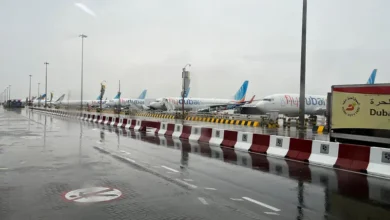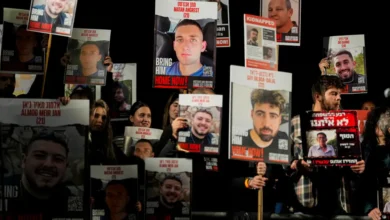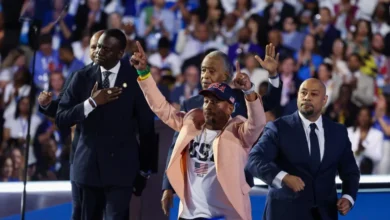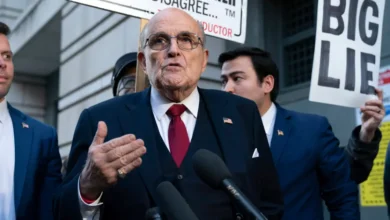Why has a court blocked Elon Musk’s $56bn Tesla pay?
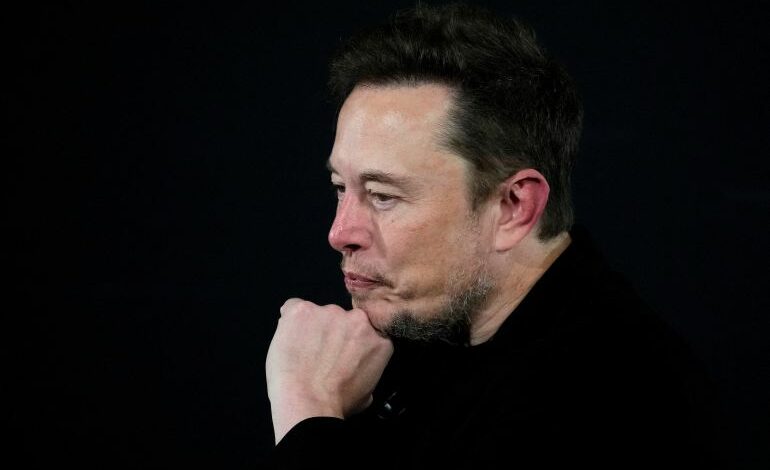
A Delaware judge has scrapped a $55.8bn compensation package for Tesla boss Elon Musk after years of legal arguments about his pay. Tesla stocks dropped 2 percent after the ruling before recovering to close at just over $187 a share.
Wednesday’s ruling came after a shareholder sued Tesla directors in 2018 in the Delaware Court of Chancery, claiming that Musk was overcompensated. The pay package, agreed in 2018 to be paid out over 10 years after Musk hit certain targets, was the biggest in United States corporate history. It contributed to Musk’s standing as the world’s richest man as the CEO hit the dozen targets set by 2023. Musk may appeal the ruling but has not indicated whether he will.
Speaking in court, Judge Kathaleen McCormick said the amount was “unfathomable” and blamed Tesla’s leadership for not properly informing shareholders about it.
The ruling saw Musk drop a notch on the world’s richest people list by Forbes, becoming the world’s second richest person after Bernard Arnault, boss of the French fashion and cosmetics empire LVMH.
What was in Musk’s Tesla pay package?
Musk, who founded Tesla in 2003, does not receive a salary from the electric carmaker. He agreed to the $56bn compensation package in 2018 to cover a period of 10 years.
The deal awarded Musk stock worth about 1 percent of Tesla’s equity each time the company achieved one of its operational and financial goals, such as ambitious aims set in 2018 to increase the Tesla market cap from $59bn to $650bn within 10 years. This meant hitting targets set for Tesla’s share price and the company’s profitability. Musk hit all 12 targets set by Tesla by 2023.
The package helped boost Musk’s personal worth and made him the highest paid CEO in the US. According to Forbes, the tycoon was worth from $198bn to $220bn in November.
Tesla is currently worth $596bn and is ranked the ninth largest US company by valuation.
Tesla’s lawyers argued that the pay package was designed to incentivise Musk as the company increased production of its Tesla Model 3. The CEO, a controversial figure because of his public takes on world affairs, is also head of the spacecraft company SpaceX and social media site X, formerly Twitter.
Which shareholder sued and why?
Richard Tornetta, an individual Tesla shareholder, filed the lawsuit against Musk and senior Tesla executives in 2018, arguing that the package was excessive and the board had not acted independently.
Tornetta, a drummer who was once in the heavy metal band Dawn of Correction, owned just nine of Tesla’s 3.1 billion shares in 2018 when he filed the suit. His shares are worth about $1,700 today. According to the court, Tornetta’s lawyers will be compensated by Tesla.
Gregory Varallo, Tornetta’s lawyer, argued that Tesla shareholders were not informed how easily Tesla’s financial goals would be achieved when they voted on the package and Musk, who owns more than 411 million shares (just over 12 percent), did not need further incentives.
Varallo also said the board did not disclose that Musk had designed the pay package himself or how close Musk was to some of Tesla’s payment committee members, such as Antonio Gracias and Ira Ehrenpreis, who the CEO has had personal and business relationships with for several years.
When it was announced, the deal sparked debate about widening pay inequalities at US companies and drew criticism from organisations such as the California State Teachers’ Retirement System, a major pension fund and a holder of Tesla shares.
She noted that the Tesla executives who voted for the package were well known to Musk although the CEO and his brother, Kimbal Musk, a major shareholder, recused themselves from the vote.
“Swept up by the rhetoric of ‘all upside,’ or perhaps starry eyed by Musk’s superstar appeal, the board never asked the $55.8 billion question: Was the plan even necessary for Tesla to retain Musk and achieve its goals?” the judge wrote.
Tesla must submit a new pay package to McCormick at a yet undefined time. The judge will then approve and finalise the ruling.
Musk’s lawyers may appeal although it’s not yet clear if that will happen.
Could Tesla leave Delaware?
Musk conducted a poll on X on Wednesday, asking users if Tesla should change its state of registration to Texas, where the company’s headquarters is located. More than 1.1 million people responded with 87 percent in favour of the move.


